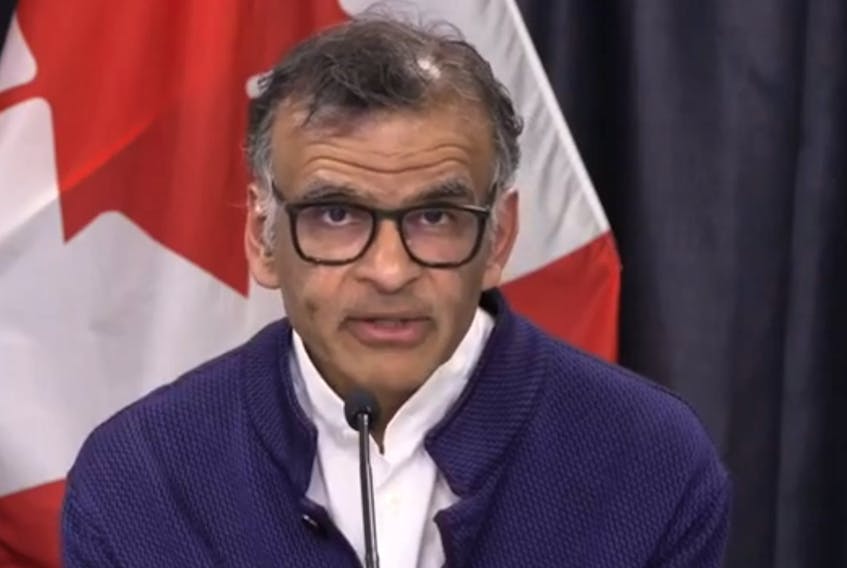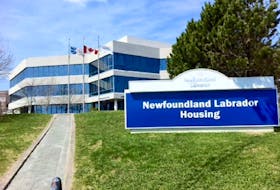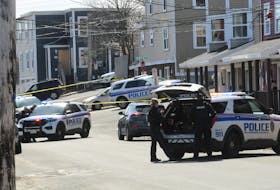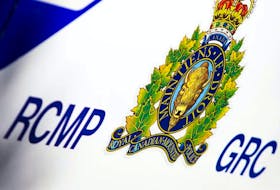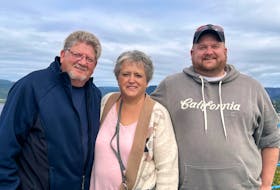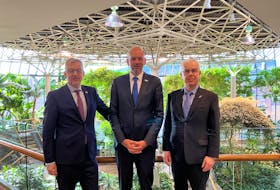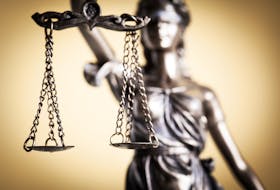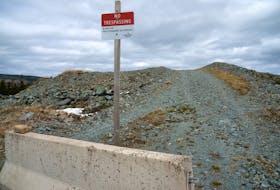ST. JOHN'S, N.L. — Tara Bradbury
The Telegram
@tara_bradbury
The number of COVID-19 cases in the province could be significantly higher without a travel ban, epidemiologist and professor Dr. Proton Rahman testified Thursday in Newfoundland and Labrador Supreme Court in St. John’s.
Rahman’s time on the witness stand has so far been brief, but in the process of being qualified as an expert witness in the legal challenge of the provincial government’s COVID-19-related travel ban, he answered questions from lawyers, speaking about his expertise and work developing models on the coronavirus's spread.
Rahman told the court the number of COVID-19 cases in the province could be up to 20 times higher if there were no travel ban in place.
There are currently no cases of COVID-19 in Newfoundland and Labrador. Two hundred and sixty-three people have recovered from the coronavirus since the first case was detected in March, and three people have died.
As a response to the COVID-19 pandemic, the province implemented special measures under the Public Health Protection and Promotion Act, including a travel ban, which bans all but permanent residents, asymptomatic workers and those granted exemptions from entering the province. The ban was amended last month to include residents of the Maritimes as part of the “Atlantic bubble.”
Between May 4 and Aug. 3, the province approved 13,628 travel ban exemption requests and denied 2,757. Of those denied entry, 458 people have asked for the decision to be reviewed.
The province’s special measures also include increased police powers when it comes to search, seizure and detention.
Halifax resident Kim Taylor, a native of Kilbride who was denied entry to attend her mother’s funeral last spring before being granted an exemption 11 days later, has launched a constitutional challenge of the travel ban. She is joined in the challenge by the Canadian Civil Liberties Association (CCLA), and together they allege the special measures are not within the province’s authority and violate protected rights.
Rahman was the third doctor to be cross-examined by lawyers representing Taylor and the CCLA in court about reports they compiled for the province related to COVID-19.
Rahman testified government officials had asked him and his team to prepare modelling scenarios related to the coronavirus in preparation for court.
Travel is a significant factor in the spread of the coronavirus, Rahman wrote in a court document, with even a small number of infected travellers having the potential to dramatically worsen the pandemic locally.
No modelling was done prior to the implementation of the restrictions, but a model used to predict COVID-19 cases over a nine-week period starting in early May estimated there would be 10 times the number of cases of the coronavirus among residents of Newfoundland and Labrador than what actually occurred with the travel ban in place.
Simulating the importation of cases over a 100-day period, models showed a three-fold higher rate of infection, even with a 50 per cent reduction in travellers coming into the province and a low rate of traveller infection, compared to having the ban in place, Rahman explained.
Rahman also spoke about a recently published study he had conducted with researchers from Stanford and Oxford universities examining how Newfoundland and Labrador’s response to the pandemic can be used as a model to understand how outbreaks of the coronavirus can be swiftly contained.
“Our results suggest that relaxing travel restrictions entirely is possible, but would require strict quarantine conditions,” the study reads. “Voluntary quarantine, even at an overall rate of 95 per cent, is not enough to entirely prevent future outbreaks.
“Relaxing travel restrictions is a highly contentious political decision. However, from an outbreak dynamics perspective, the picture is quite clear: without proper control, an influx of infected travellers can easily become the seed for a new exponential outbreak.”
John Drover and Rosellen Sullivan, lawyers representing Taylor and the CCLA, respectively, will cross-examine Rahman on his information when the challenge resumes Friday morning. Dr. Janice Fitzgerald, the province’s chief medical officer of health, is also scheduled to testify.
Proceedings were cut short Thursday after one of the lawyers involved in the proceeding became ill, though not with suspected symptoms of COVID-19, and was denied entry to the courthouse as per protocol.
With files from David Maher

